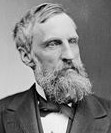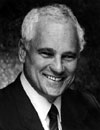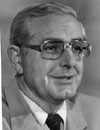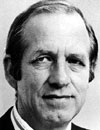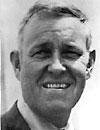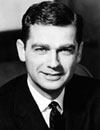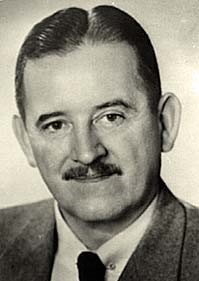This website uses cookies so that we can provide you with the best user experience possible. Cookie information is stored in your browser and performs functions such as recognizing you when you return to our website and helping our team to understand which sections of the website you find most interesting and useful. Please see our privacy policy for more information.
Oregon
Gov. Lafayette Grover
- September 14, 1870 - February 1, 1877
- Democratic
- November 29, 1823
- April 10, 1911
- Maine
- Bowdoin College
- Married Elizabeth Carter; one child
- Resigned
- Representative, Senator
- Volunteer Militia
About
LAFAYETTE GROVER was born in Bethel, Maine and attended Bowdoin College in Brunswick, Maine. He went on to study law in Philadelphia and was admitted to the Pennsylvania Bar in 1850, after which he relocated to Oregon via San Francisco. He served briefly as clerk of the U.S. District Court before returning to the practice of law. He helped recruit—and served as First Lieutenant of—a company of volunteers to fight in the Rogue River Indian War of 1853-54. He was also appointed by the Department of the Interior to a committee assigned to assess losses sustained by white settlers in the Indian wars of 1853 and 1857. He was elected Prosecuting Attorney of the Second Judicial District in Oregon in 1852 and representative to the Territorial Legislature in 1853 and 1856, serving as Speaker of the House in 1857. Chosen the first representative of Oregon to Congress, he served for only seventeen days until the 35th Congress concluded in March, 1859. In 1870 he won election as governor, winning reelection four years later. Prior to the completion of his second term, he resigned the governorship to become a U.S. Senator by appointment of the state legislature, holding the position for six years. As both governor and U.S. Senator he fought to exclude Chinese workers from Oregon and to revise the Burlingame Treaty of 1868, which encouraged Chinese immigration to the United States. He supported construction of locks at Willamette Falls in Oregon City, which when finished permitted river traffic from the lower to the upper Willamette and helped stimulate farm production by reducing freight rates. Grover also advocated the organization of a state university, an agricultural college, and institutions for the deaf and blind. During his governorship, the State Capitol and the state penitentiary were constructed. After leaving Congress, he sold real estate. Grover was also involved in organizing the Willamette Woolen Manufacturing Company in Salem and directed completion of Salem Flouring Mills.
Source
Sobel, Robert, and John Raimo, eds. Biographical Directory of the Governors of the United States, 1789-1978, Vol. 4. Westport, CT: Meckler Books, 1978. 4 vols.
The National Cyclopaedia of American Biography, Vol. 8. New York: James T. White & Company.

